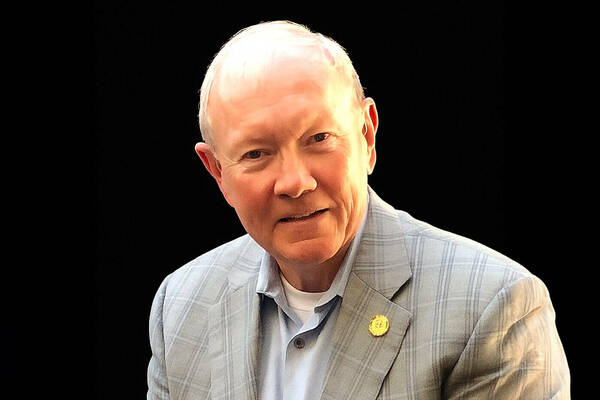Banks that identify fraudsters increase loyalty, retain more defrauded customers than others who never were compromised

Financial institutions are constantly fighting off fraudsters who steal money from customer accounts. Banks spend millions each year to figure out who was responsible and keep customers from leaving; however, in most cases it’s nearly impossible to figure out who committed the fraud.
Should banks continue pouring resources into investigations that don’t lead to accountability? The short answer is yes, according to Vamsi Kanuri, the Viola D. Hank Associate Professor of Marketing at the University of Notre Dame’s Mendoza College of Business. In a new research study, Kanuri found that if a bank can’t tell a customer who was responsible for a fraudulent transaction, that customer loses trust, closes their account and leaves the bank.
In “Mitigating Churn After Online Financial Fraud: The Value of Blame Attribution,” published in the forthcoming issue of the Production and Operations Management journal, Kanuri examined data from a major U.S. bank covering 422,953 customers over five years. The study showed that a lack of clear answers from the bank resulted in a big increase in people who had experienced fraud leaving — 40 percent more than those who were never defrauded in the first place.
Kanuri, along with Mendoza’s Sriram Somanchi and Rahul Telang from Carnegie Mellon University, showed that, surprisingly, when the bank catches the real fraudster, not only do customers feel more secure, but also 62 percent fewer leave compared with customers who never experienced fraud at all.
“Intuitively, we might expect that any instance of fraud would harm the relationship between a customer and their bank, even if the case was resolved,” Kanuri said. “After all, fraud is a serious violation of trust, and you would think it would automatically push customers closer to the exit. Yet we show the opposite in cases of correct attribution: Not only do customers stay, but they also display higher levels of loyalty than those untouched by fraud. This is a real-world demonstration of the service recovery paradox, where effective handling of a failure can make customers more loyal than if no problem had occurred.”
Financial institutions are increasingly faced with sophisticated phishing scams where perpetrators create mass email campaigns that redirect users to a fake bank login page to collect their login credentials. Fraudsters can even circumvent state-of-the-art two-factor authentication checks by taking control of users’ phones through SIM jacking and inheriting the users’ geographic identity using geo-spoofing techniques.
A bank that fails to catch fraudsters creates an immediate, lasting impression of unreliability, though it fades over time. On the other hand, a bank that successfully catches fraud and protects its customers earns a stronger, more permanent reputation for competence. Kanuri said this demonstrated that “how fraud is resolved shapes not only immediate reactions, but also the long-term relationship between banks and their customers.”
Not all customers react the same way.
The data revealed that factors such as tenure and how often customers interact with their bank influence their responses. Customers with shorter relationships and fewer touchpoints are more likely to leave a bank if a fraudster goes unidentified, since they don’t have a long history of trust to rely on. Longer-tenured customers or those who engage more frequently with the bank are more forgiving.
“Interestingly, when the bank successfully identifies a fraudster, these differences largely disappear,” Kanuri said, “since the act of identifying the culprit provides enough reassurance to restore trust across the board.”
The data, which included customer demographics, account activity, tenure, balances, interactions with the bank and instances of fraud, as well as a follow-up experiment confirmed that what really drives customer behavior after fraud is how much they believe in the bank’s ability to safeguard their accounts. When fraudsters are not identified, this undermines trust, prompting people to withdraw money, move funds elsewhere and eventually close their accounts. When they are identified, the opposite happens. It restores confidence, encourages loyalty and sometimes even strengthens the customer-bank relationship.
The results provide evidence in support of reforms proposed by the U.S. Treasury Department to increase transparency in ACH transactions and require money-transfer apps to report them. Such changes would make it easier for banks to trace perpetrators, assign blame and reduce customer defection. Beyond the financial upside, these reforms could also reinforce trust in financial institutions by making service recovery more effective.
“The payoff of fraud investigations comes in the form of loyalty, not direct financial recovery, which is not the way most people in the industry are accustomed to thinking about it,” Kanuri said.
Contact: Vamsi Kanuri, 574-631-2399, vkanuri@nd.edu
Latest ND NewsWire
- Researchers deconstruct chikungunya outbreaks to improve prediction and vaccine developmentThe symptoms come on quickly — acute fever, followed by debilitating joint pain that can last for months. Though rarely fatal, the chikungunya virus, a mosquito-borne illness, can be particularly severe for high-risk individuals, including newborns and older adults. While the virus is common…
- Eck Institute investigator to strengthen postpartum care for Indiana mothersYenupini Joyce Adams, associate professor of the practice and maternal health lead for the Eck Institute for Global Health at the University of Notre Dame, is partnering with Beacon Health System to pilot a new, first-of-its-kind postpartum care model in the South Bend-Elkhart community.
- Gen. Martin Dempsey to speak at Notre Dame Forum event on ‘Hope, Global Stability and the Role of the United States’Gen. Martin Dempsey, the retired 18th chairman of the Joint Chiefs of Staff, will join University President Rev. Robert A. Dowd, C.S.C., for a fireside chat at 4 p.m. Friday (Oct. 10), as part of the 2025-26 Notre Dame Forum. The discussion, titled “Hope, Global Stability and the Role of the United States,” is part of the exploration of this year’s Notre Dame Forum theme, “Cultivating Hope.” It will take place in Rooms 215/216 of McKenna Hall and will also be livestreamed. The event is free and open to the public.
- University of Notre Dame joins the Global Coalition of Ukrainian StudiesThe University of Notre Dame has joined the Global Coalition of Ukrainian Studies after signing a memorandum of cooperation, formalized Sept. 24, at the Ukrainian Institute of America in New York City. Notre Dame joined four other American institutions that were also publicly welcomed to the coalition at this event: Arizona State University, Columbia University, Manor College and the Shevchenko Scientific Society.
- One year later, Inauguration Build a ‘dream come true’ for Habitat familiesOne year later, work on Inauguration Build 2024 is complete, offering shelter and so much more to five local families.
- Alumni Association and YoungND honor 2025 Domer DozenThe Notre Dame Alumni Association announced its 2025 Domer Dozen cohort, honoring 12 graduates ages 32 and younger for excellence in their contributions in learning, service, faith and work — the core pillars of the association’s mission.













